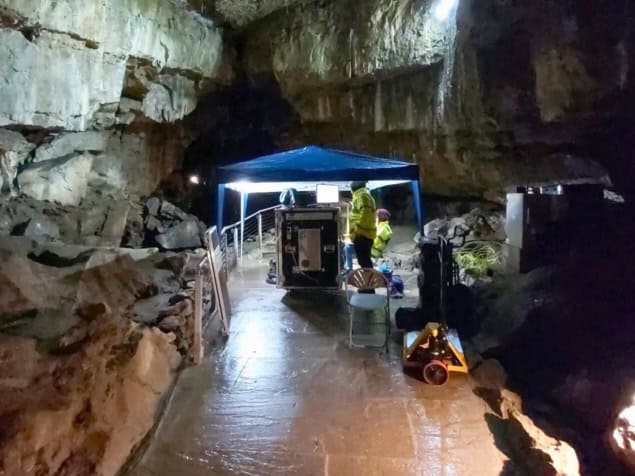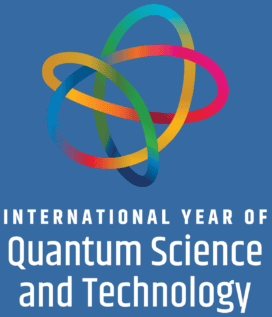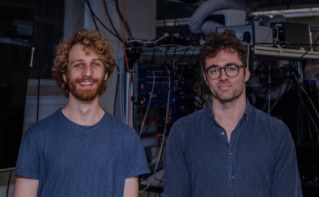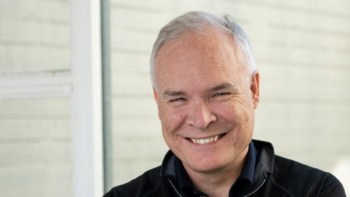Part of our International Year of Quantum Science and Technology coverage

The UK-based company Delta.g has bagged the 2025 qBIG prize, which is awarded by the Institute of Physics (IOP). Initiated in 2023, qBIG celebrates and promotes the innovation and commercialization of quantum technologies in the UK and Ireland.
Based in Birmingham, Delta.g makes quantum sensors that measure the local gravity gradient. This is done using atom interferometry, whereby laser pulses are fired at a cloud of cold atoms that is freefalling under gravity.
On the Earth’s surface, this gradient is sensitive to the presence of buildings and underground voids such as tunnels. The technology was developed by physicists at the University of Birmingham and in 2022 they showed how it could be used to map out a tunnel below a road on campus. The system has also been deployed in a cave and on a ship to test its suitability for use in navigation.
Challenging to measure
“Gravity is a fundamental force, yet its full potential remains largely untapped because it is so challenging to measure,” explains Andrew Lamb who is co-founder and chief technology officer at Delta.g. “As the first to take quantum technology gravity gradiometry from the lab to the field, we have set a new benchmark for high-integrity, noise-resistant data transforming how we understand and navigate the subsurface.”
Awarded by the IOP, the qBIG prize is sponsored by Quantum Exponential, which is the UK’s first enterprise venture capital fund focused on quantum technology. The winner was announced today at the Economist’s Commercialising Quantum Global 2025 event in London. Delta.g receives a £10,000 unrestricted cash prize; 10 months of mentoring from Quantum Exponential; and business support from the IOP.
Louis Barson, the IOP’s director of science, innovation and skills says, “The IOP’s role as UK and Ireland coordinator of the International Year of Quantum 2025 gives us a unique opportunity to showcase the exciting developments in the quantum sector. Huge congratulations must go to the Delta.g team, whose incredible work stood out in a diverse and fast-moving field.”
Two runners-up were commended by the IOP. One is Glasgow-based Neuranics, which makes quantum sensors that detect tiny magnetic signals from the human body. This other is Southampton’s Smith Optical, which makes an augmented-reality display based on quantum technology.
This article forms part of Physics World‘s contribution to the 2025 International Year of Quantum Science and Technology (IYQ), which aims to raise global awareness of quantum physics and its applications.
Stayed tuned to Physics World and our international partners throughout the next 12 months for more coverage of the IYQ.
Find out more on our quantum channel.




